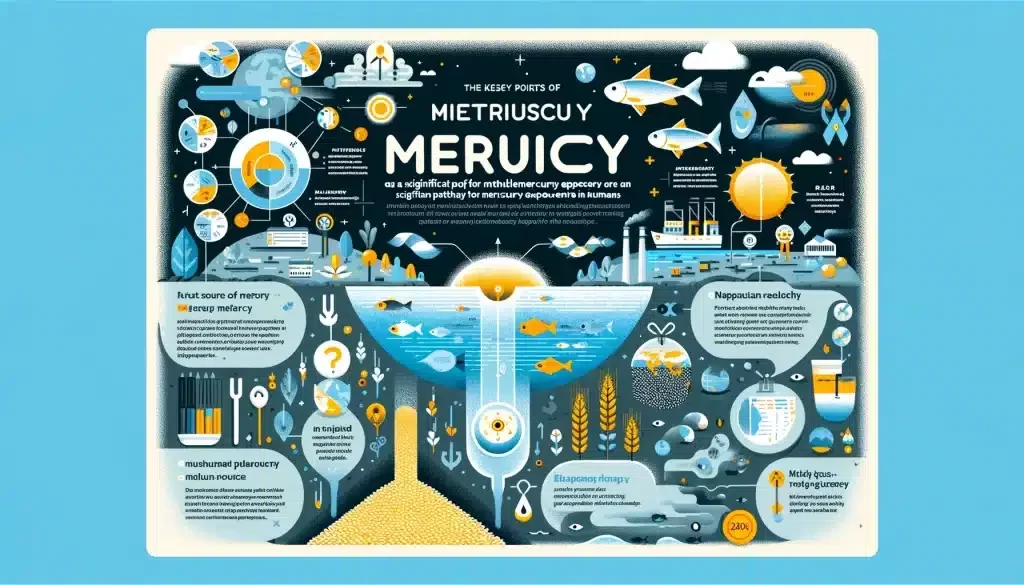Research Progress On Mercury Pollution And Human Body Load
Exploring research on mercury pollution, highlighting rice as an emerging source of methylmercury exposure, and emphasizing the need for broader studies.
Mercury pollution is a global problem. Mercury can produce highly toxic methylmercury under the action of some anaerobic microorganisms, posing a threat to human health. This article reviews some research progress on mercury pollution and human body burden, including the effects of mercury on the human body. hazards, biological indicators, and the two main pathways of methylmercury exposure for the general population. Previously, it was generally believed that eating fish and shellfish and other aquatic products was the main pathway for methylmercury exposure in the human body. However, recent studies have found that methylmercury in rice The mercury content is relatively high, and eating rice will cause potential methylmercury exposure risks. At present, most of the research on methylmercury exposure in rice is concentrated in Guizhou, my country. It is very necessary to carry out investigations and evaluations of methylmercury levels in rice in more areas in the future. Risks of long-term exposure to low-dose methylmercury in rice to ensure the safety of rice.
Traditional Sources of Methylmercury Exposure
Mercury pollution stands as a formidable global concern, with its capacity to transform into the highly toxic methylmercury through the actions of specific anaerobic microorganisms, thereby posing a significant threat to human health. This post delves into the research progress on mercury pollution and its implications on human health, focusing on the hazards posed by mercury, biological indicators of exposure, and the primary pathways through which the general population may encounter methylmercury.
Emerging Concerns: Rice as a Source of Methylmercury
Historically, the consumption of fish, shellfish, and other aquatic products has been identified as the principal route of methylmercury exposure in humans. This understanding has been pivotal in guiding public health advisories and dietary recommendations worldwide. However, emerging research challenges this long-held perception by highlighting an alternative, significant source of exposure: rice consumption. Recent studies have indicated that the mercury content in rice can be relatively high, thereby introducing potential risks of methylmercury exposure through diet. This revelation underscores the necessity of broadening our perspective on mercury exposure sources beyond aquatic environments.
The Importance of Expanding Research on Methylmercury in Rice
The majority of the research focusing on methylmercury exposure through rice consumption has been concentrated in Guizhou, China. These findings are critical, as they suggest that geographical regions with high mercury pollution may inadvertently facilitate the bioaccumulation of methylmercury in rice, a staple food for billions of people globally. This situation necessitates a broader investigative scope to evaluate the levels of methylmercury in rice across various regions. Such efforts are imperative for comprehensively understanding the scale and implications of methylmercury exposure via rice consumption.
Health Implications of Methylmercury Exposure
The risks associated with long-term, low-dose exposure to methylmercury cannot be overstated. Methylmercury is a potent neurotoxin that can lead to significant neurological and developmental impairments, particularly in fetuses and young children. Furthermore, methylmercury exposure has been linked to cardiovascular diseases and immune system dysfunctions in adults. Biological indicators, such as hair and blood mercury levels, have been pivotal in assessing human exposure to methylmercury and its health impacts. These indicators, along with dietary surveys and environmental assessments, are crucial tools in the ongoing effort to understand and mitigate the effects of mercury pollution on human health.
Conclusion and Call to Action
In conclusion, the discovery of rice as a significant source of methylmercury exposure represents a paradigm shift in our understanding of mercury pollution and its impact on human health. This insight highlights the urgent need for comprehensive studies to assess the methylmercury levels in rice across different regions, particularly in areas prone to high mercury pollution. Addressing this challenge requires a concerted effort from researchers, policymakers, and the global community to implement effective monitoring, regulation, and public health strategies. By expanding our knowledge and taking proactive measures, we can safeguard public health and ensure the safety of dietary staples such as rice, thereby mitigating the risks posed by mercury pollution.
For futher details of this article and research, feel free to contact our team for assistance.
Original research was done by Chen Ying, Shao Yufang
About ETprotein:
ETprotein, a reputable plant protein vegan protein Chinese factory manufacturer and supplier, is renowned for producing, stocking, exporting, and delivering the highest quality organic bulk vegan protein and plant proteins. They include Organic rice protein, clear rice protein, pea protein, clear pea protein, oat protein, watermelon seed protein, pumpkin seed protein, sunflower seed protein, mung bean protein, peanut protein, various of plant peptides etc. Their offerings, characterized by a neutral taste, non-GMO, allergen-free attributes, cater to a diverse range of industries. They serve nutraceutical, pharmaceutical, cosmeceutical, veterinary, as well as food and beverage finished product distributors, traders, and manufacturers across Europe, USA, Canada, Australia, Thailand, Japan, Korea, Brazil, and Chile, among others.
ETprotein specialization includes exporting and delivering tailor-made protein powder and finished nutritional supplements. Their extensive product range covers sectors like Food and Beverage, Sports Nutrition, Weight Management, Dietary Supplements, Health and Wellness Products, and Infant Formula, ensuring comprehensive solutions to meet all your protein needs.
As a trusted company by leading global food and beverage brands and Fortune 500 companies, ETprotein reinforces China’s reputation in the global arena. For more information or to get a free sample of their protein products, please contact them and email sales(at)ETprotein.com today.












